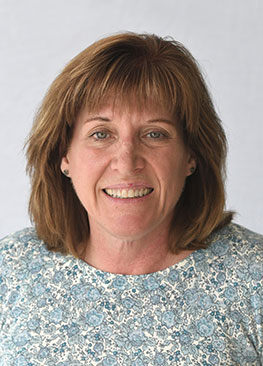
Katherine Balint, DNP, APHN-BC, CHSE, CRRN
Assistant Professor (Clinical), Associate Director of Clinical Learning Labs and Advanced Public Health Nursing Specialty Coordinator
256 Cohn, 5557 Cass Ave., Detroit, Michigan 48202katherine.balint@wayne.edu
313-577-0375
Office hours
By appointment
Katherine Balint, DNP, APHN-BC, CHSE, CRRN
Bio Sketch
Dr. Balint has been a registered nurse for 39 years and a board-certified advanced public health nurse for 9 years. She has been a faculty member at the Wayne State University College of Nursing since 2008, and associate director of clinical learning labs since 2012. Dr. Balint has taught in both the undergraduate and graduate programs and is the specialty coordinator for the advanced public health nursing program. She is enthusiastic about simulation and its role in nursing education, along with the development of advanced interprofessional learning experiences that promote team-based care practices. In addition to her role as assistant professor and associate director, Dr. Balint teaches an interprofessional education course with other health science faculty within the WSU campus and is an IPE faculty champion for the Michigan Area Health Education Center (AHEC) Scholars Program. Over the past four years, she has served on the executive board and assumed the role as treasurer of Nurse Practice Corporation. She also volunteers as a faith community nurse in downtown Detroit.
Education
- Certified Healthcare Simulation Educator, 2020
- DNP, Wayne State University, 2013
- MSN, Madonna University, 2008
- Certified Rehabilitation Registered Nurse, 1995
- BSN, Nazareth College,1983
Research Interests
- Simulation in nursing education and practice
- Public health nursing’s role in team-based care for improved population health outcomes
- Interprofessional education in health care
- Organizational culture and change: impact on autonomy of nursing practice
- Mental health advocacy
DNP project planning:
- Chaired more than 22 DNP committees and has been DNP project member/reader for 27 projects.
Project types:
- Program evaluation
- Policy analysis
- Quality improvement
- Practice change
- Community engagement
Theoretical frameworks:
- Erickson, Tomlin & Swain Modeling and Role-Modeling-A Theory & Paradigm for Nursing
- NLN
- Jeffries Simulation Theory
- Pender's Health Promotion Model
- Bridges’ Transition Model for Change
- Deci & Ryan
- Self-Determination Theory
Methodologies:
- Logic Model
- PDSA
- TQM
- AHRQ
- Team STEPPs
- Advancing Research and Clinical practice through close Collaboration (ARCC) Model
Clinical Area(s) of Expertise
- Public health
- Behavioral health
- Nursing leadership
- Simulation and simulation-based education
- Organizational culture and change for EBP
- Cardiac intensive care
- Physical medicine and rehabilitation
Selected Publications
- Baumann, M., Killebrew, S., Zimnicki, K., & Balint, K. (2017). Do‐Not‐Resuscitate Orders in the Perioperative Environment: A Multidisciplinary Quality Improvement Project. AORN journal, 106(1), 20-30.
- Balint, K. A. & George, N. (2015). Faith community nursing scope of practice: Extending access to healthcare. Journal of Christian Nursing, 32(1), 34-40.
Honors and Awards
- Medicine and Community Health Academy Certificate of Appreciation, June 2013
- Helen Newbury Joy Endowment Scholarship, 2012
- Bess Haddad Endowed Scholarship, 2012
- National Nursing Spectrum Award for Excellence, Midwest Region: Advancing and Leading our Profession, 2006
- Henry Ford Health System-Wyandotte Nursing Leader of Year, 2006
Current Research
- The use of translational and implementation science to improve the knowledge application(uptake) of physical assessment skills in undergraduate nursing students